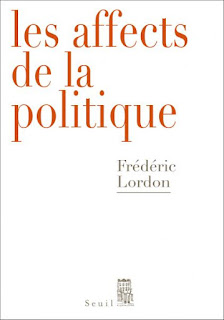Several stories have reported that 1984 is being read, or at least bought, again, becoming an unlikely best seller. This is ambiguous news at best. The book is sophomoric enough to deserve its place on every high school's sophomore's reading list. Its politics are dubious, and its philosophy is even worse, its picture of a totalitarian society based on hate and universal deception always seemed more of something to reassure members of liberal capitalist society that everything was alright in their society than a warning. There is thus something amusing about this particular chicken coming home to roost, of cold war ideology become the basis, however, impoverished of a critique of ideology.
Thursday, January 26, 2017
Thursday, January 12, 2017
The Limited Efficacy of Facts Insofar as They are Facts: A Spinozist Reflection on Fake News
Nothing could be more foolish, further from the letter and spirit of Spinoza's writing than to proclaim that a given proposition is the most important. Spinoza's thought is in the movement and relation of the different propositions, axioms, and definitions, not this or that proposition. His thought is systematic, not aphoristic, which is why his thought does not lend itself to tweets, memes, or bumperstickers. However, there is one particular proposition which remains a personal favorite. It is Proposition One of Part Four, "Nothing positive which a false idea has is removed by the presence of the true insofar as it is true." This idea always seemed important to me in that it offers a corrective to the spontaneous philosophy of philosophers, the idea that true ideas and well reasoned arguments have a force in and of themselves.
Tuesday, January 03, 2017
Affective Normalization: Between Lordon and Trump
Trump's election was met with an insistent demand on the part of those who opposed him, a demand not to "normalize" his election and his presidency. The use of this term "normalize" is curious and telling. The word is not legitimize, although one could argue that the debates about the Electoral College and the popular vote, were in some sense debates about the nature, and limits, of democratic legitimacy. Or, more to the point, the legitimacy of what counts as democratic legitimacy in the US. The word "normalize" suggests something different, something broader and more inchoate than legimitacy, less a matter of constitutional checks and balances than a prevailing sentiment or structure of feeling. In some sense the slogan draws off of the existing opposition to Trump, the inability of many to see him as anything other than a crude narcissist more befitting the world of reality TV than Realpolitik, and demanding to extend the protests and jokes into opposition. It is a politics of a affect, the attempt to make a prevailing sensibility into a politics.
Subscribe to:
Comments (Atom)


